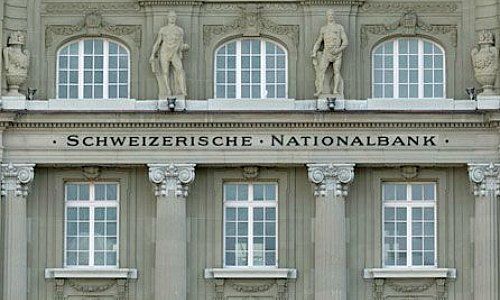The Swiss central bank has made a huge profit in the first quarter of 2019. This won't however assuage shareholders of the bank who will meet on Friday in the Swiss capital.
The quarterly profit of 30.7 billion Swiss francs ($30.1 billion) that the Swiss National Bank (SNB) reported on Thursday contained a profit on foreign currency positions of 29.3 billion francs, a valuation gain of 0.9 billion on gold reserves and a profit on Swiss franc holdings of 0.6 billion.
The quarterly figures of the central bank are heavily dependent on market fluctuations. It is also worth noting that the bank doesn't use assets to maximize its profit but as a means to steer monetary policy. The SNB had a loss of 6.8 billion in the first quarter of 2018.
Strict Policy
The huge sums reported by the SNB hence are not indicative of what the bank is mandated to achieve with its policy. The dry fashion in which the bank reports its figures is a clear sign of the bank's reluctance to generate unwanted headlines.
The profit of 17.4 billion francs on equity securities and instruments denominated in foreign currencies shows one thing: the bank is sitting on a mountain of foreign securities and currency because it has decided to keep the franc stable at all cost. The SNB has bought large amounts of foreign currency, mainly euros, to prevent a further appreciation and to keep the manufacturing industry competitive.
Pension Funds at a Loss
Despite the formidable showing of the Swiss economy in recent years, the SNB kept the target rate at minus 0.75 percent since January 2015, a policy that has met with mounting criticisms. Pension funds in particular have been at a loss to generate a reasonable rate of return as their traditional investment of choice, bonds, don't yield them what they need to finance pensions.
And that's where the man in the street enter the fray. In normal times, monetary policy tends to be a realm of the few, but with pensions under pressure, the man in the street understandably wants to know more. The peculiar structure of the Swiss National Bank, which has a listing and whose shares can be bought by anybody, means that shareholders get to confront the directorate in person once a year at the annual general meeting. It is being held tomorrow in Bern.
Political Pressure
Insiders told finews.com that the directorate is ready for the predicted barrage of criticism from shareholders. Thomas Jordan, the chairman, is aware of the criticism and takes it very seriously. He has prepared a speech in which he will outline the bank's policy in detail, answering the criticism that has been levelled at the directorate.
But the pressure on the bank will likely mount in any case. At the beginning of the year, Swiss lawmakers from the left and right, and together with labor unions, demanded that the bank should give the money it receives for deposits held at the SNB to pension funds. The SNB takes about 2 billion francs each year from banks, pension funds and other financial market players.
Another demand was put to the government by the political left. It proposed setting up a state fund with profits made by the SNB. The proponents of such a fund want to use the money to prop up the ailing state pension system.
Government Support for SNB
So far, the bank was able to fend off such bids with the help of the government, arguing that its assets were reserved for monetary policy purposes and not intended to serve demands that had nothing to do with its mandate.
But the longer the directorate of the bank is unable to «normalize» interest rates, the more leverage the demands will gain, as Switzerland's largest bank, UBS, recently remarked.



































